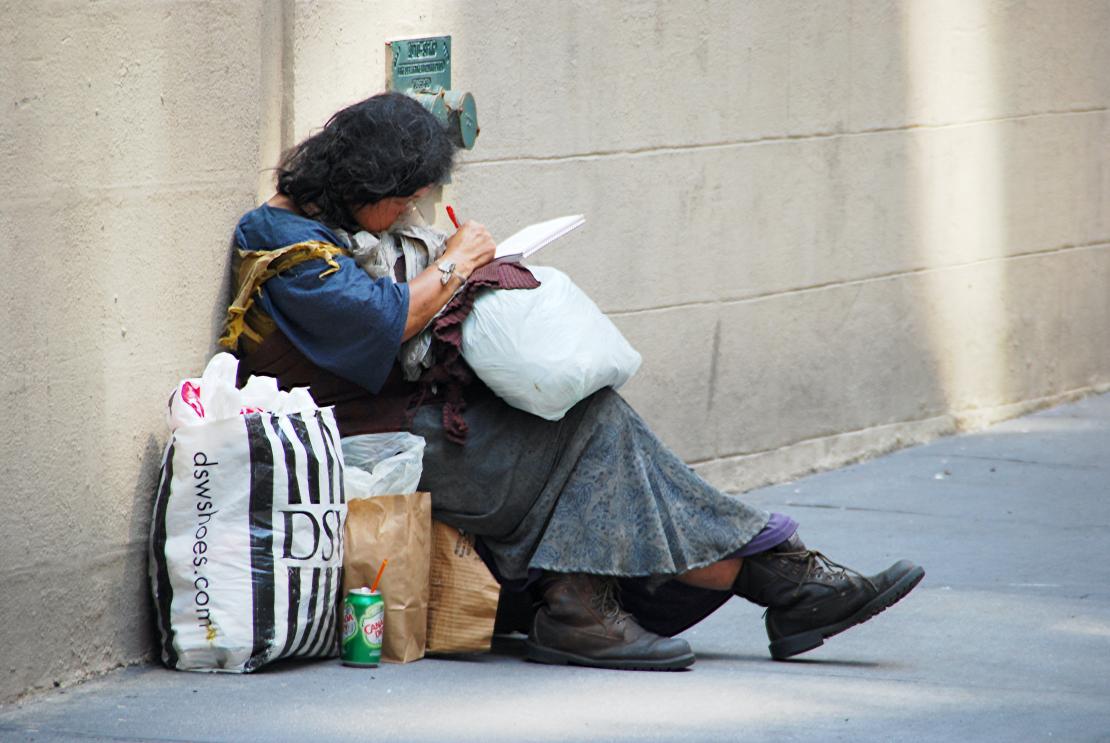
The poverty that I encounter daily and turn my face to, or don't look in the eye, is nameless and faceless. Not that for a story with eyes, it is necessary to close the face of a soul, a life of frustrations, a life of suffering, a life of discouragement. Or even illness, lack of estimation, or loneliness. We pass by the side of poverty running, without stopping in a hurry, and often it does not have the walk, along, in a distant way, we do not touch it.
After all, the responsibility is not mine but the state to whom I pay taxes to resolve these issues. Or social organizations, which I even help with money, that are working on the ground, aware of the situations and prepared to give this kind of support.
In fact, we live surrounded by pockets of poverty that intersect with us, on the street, in companies, and our neighbors. There is certainly something that concerns us and is within our power.
Several studies were recently published, of enormous scope and rigor, complementary in approach but converging in conclusions. Portuguese society, at its origin and before all social support was activated, has a high percentage of potential poverty. After applying social support, this percentage drops drastically, but still results in a significant number of families, with employed people, in poverty. It is, therefore, our personal, corporate responsibility, as business leaders and companies, to deal head-on with these situations and seek to identify ways to transform and combat poverty eradicating, in particular with those who come across us in our companies. It is also up to us to mobilize resources, help, support, and broader paths, but above all, to create conditions so that these families can, by themselves, get out of the situations of potential poverty in which they find themselves. Recognize that, in addition to poverty, there are low-income families, and several circumstances that lead families into poverty are already mapped. It is essential to point out employees whose families are in a situation of possible poverty and identify forms of support, but above all, to give back and dignity, starting from the family itself.
In this context, ACEGE decided to launch the Traffic Light as a support tool to signal the most fragile situations in a broader assessment that includes the perspective of financial conditions and access to income, to decent housing, to education, to health care or hygiene, to healthy food, to transport or even access to a community integration of the family. In the first phase, we intend to “make visible the invisible”, what was unknown or ignored. It is intended to identify, in traffic lights (green, yellow, or red), the situation of families to be able to act in a more targeted way.
At a later stage, we intend to “make the impossible possible”. It will be necessary to mobilize the required means that enable the family to transform its situation—but also have a network of proximity and support that helps to respond to the specific needs identified. It is in a network, in complementarity, with the well-targeted available resources, that we will achieve better results and, above all, be transformative. And finally, at a more advanced stage, we have the dream of democratizing the access and transformation network, making “accessible to all what belongs to all.”
What lies ahead is a broad path, mobilizing new agents, creating pathways of proximity, and raising the awareness of business leaders to be agents of change as they have been so many times. As entrepreneurs and mobilizers, they can make a significant contribution, together with many other agents. We want families to be involved, supporting and empowering them to transform their situations, restoring due dignity.
The first and most immediate solutions could be monetary support, salary increases, or greater access to work, services, or care. But, in a culture of encounter, mobilizing the most appropriate means, we know that the most fruitful path is what is done together, in a network, in complementarity. The collective always has more scope than the individual and isolated. Time, the medium and long term, is also superior to space, to the short-term tactic. Or, in another way, the path, even if prolonged, is more fruitful than the solution, which is often temporary and a remedy. The search for quick solutions does not lead us, most of the time, to a path that seeks a good that is bigger, broader, and more lasting.
We live in a time when we have all the capabilities to fight poverty. If we don't, it won't be for lack of capacity but lack of availability, indifference, or lack of character. Poverty with a name touches us closely, involves us, and commits us. That's the way. The poverty that has worsened with the pandemic and war must mobilize us.
We often talk about state responsibility or corporate social responsibility. But the final question is at the level of personal responsibility: "What is my responsibility when talking about Poverty?"
Have a great and impactful week!
João Pedro Tavares
President of ACEGE and Fundação Gaudium Magnum
This article refers to edition #149 of the "Have a Great and Impactful Week" Newsletter and covers SDG 1, 16, and 17.
Subscribe here to receive the weekly newsletter